
 Flash News
Flash News

Alfred Lela
I forwarded a dear friend today. Ndoc Mulajn, a 53-year-old from Mulaj e Mërturit, a Catholic of the tribes of our Northern Mountains, unfamiliar with the peaks, necks, crossings, paths, springs, rivers, and caves, which he insisted were beer … because that is what they call them on his sides.
Dave and Dea's father, Violeta's husband, Mark's brother, Sokol, Agim, Lirie, Merita, and Dafina's brother.
Ndoci was something on its own for many people, but I want to talk about what it's like for me. He was, therefore, the man who, in addition to loving the mountains, understood them, heard them whisper special codes or silences, which only highlanders could grasp. Ndoci was a philosopher of the mountains, not an excursion, their ordinary trespasser. How can you understand otherwise a mountaineer, who has been born at the top of the majestic and at the same time rugged mountains of its sides, who returns to them with perseverance in adulthood? Not only with the passion of recognizing them, but also with the desire to open them to the eyes, hearts, and minds of others.
Anyone who goes to the mountains knows that most of their trails have been marked by Ndoc Mulaj. From the Meadow of Hamza in Tërbun, from the Open Meadows in Cukal, from Bicaj to Krrab, from the Shala River to Guri i Blinit of Lekë, and further to Theth, along the Shala River, or above in Mollë i Shoshit, is Ndoc Mulaj with his hand and philosophy. If he gets in the way there, the paint of the white-red stripes on the stones, on beech or oak trunks, is from his hand. When you see signs of thinly marked mountain trails, with directions and kilometers, as in Shkodra, Malësi e Madhe, Puka, or Tropoja, it is like having Ndoc Mulaj and the soul coming out of his body on the afternoon of Thursday, December 30, t 'lead you to the heart of the mountains.
Ndoci was just like the highlanders, in stature and word. Within them, you can find, not infrequently, the subtle irony of a man who has seen life from the heights of the geography of his country and his personal history, which do not allow for excessive words and few acts. He even used this irony to cover up his sometimes ignorance. For example, when we were returning from climbing the mountain of Krrab and, after passing Puka, I asked him 'what is the name of that village there on the slope of the mountain, Ndoc'. 'I do not care at all,' he waited for me. It was his sarcastic way of saying 'I do not know'. And Ndoci did not allow himself not to know something about our mountains, tribes, waters, surprises, and their temptations.
Ndoci was the embodiment of subtle ironies even within his own life. He had heart problems and, after an intervention, doctors had implanted two coronary rings. He, with all the pride, the rings in his heart, and the love for the mountains, did not part with the ascents and descents from those heights which called to him.
Both in life and death.
With those rings in his heart, Ndoc Mulaj gave his body in the heart of our mountains, in Munella, somewhere between Mirdita and Puka. He gave body and gained spirit, as Dom Gjergj Meta could say, whom Ndoci had invited to do that climb in Munella together with us on that dramatic day of December 30th.
Ndoci's body fell and the ascent went up, just below the Top of the Cross on Mount Munella. When I saw the cross and the rosary today among the lifeless hands, when I remembered the conversations with it, with some doubt about religion, I could not miss a maxim from the Bible, where God addresses man: You who did not participate in creation your, how can you not ask me to be in your salvation.
Ndoci separated us physically but left us the mystique of his mountains, the presence of our mountains. As he wrote in a post on November 15 this year:
When I die, let me be grass,
in my mountains in the spring,
in autumn I will become a seed.
When I die, let me be water,
and my breath is steam,
it will rain in the field.
When I die, let me become a stone,
at the edge of my country,
to stand border.
- Martin Camaj
Ndoc Mulaj returns to his mountains, which gave him life, but in a moment of surprise, they took it. He could have died in bed from the heart but chose to die where he had the heart.
Every time I go out into the mountains, I will call them. in the majekrahin of our Northern tribes: “Hello, Ndoc Mulaj, heeeheeehheeeeeyyyyyyyyyyyyyyyyyyyyyyyyyyyyyyy!
Latest news



Fiscal peace, but at a cost
2025-07-05 18:00:10
'Bankers' tax evasion, Chinese CEO and former director jailed
2025-07-05 17:39:21
Kyle Walker joins English club on two-year deal
2025-07-05 17:20:24
Two cars collide on the Saranda-Delvina axis, 4 injured
2025-07-05 17:05:29
Touching gesture! Liverpool will pay Jota's family's salary until 2027
2025-07-05 16:45:18
The zodiac signs that cheat most often
2025-07-05 16:25:53

"I asked for the dismissals", Dredha tries to soften Rama's 'blow' in Vlora
2025-07-05 15:48:49
Bomb threat in Parliament, prosecutor: It was a lie
2025-07-05 15:22:28

Bardhi: The recount revealed how greedy Zeqine Balluku is in stealing
2025-07-05 14:44:29
Knife wound on the secondary road Tirana-Durrës, perpetrator sought
2025-07-05 14:37:54
Tears and pain, Diogo Jota is escorted to his final home
2025-07-05 14:21:34
Success starts with yourself! Simple ways to invest in personal development
2025-07-05 13:58:50
Unlicensed firearms found in apartment, 50-year-old arrested in Lushnje
2025-07-05 13:43:11

Tirana Court remands Skerdi Sina to prison
2025-07-05 12:59:34
Cocaine laboratory in Greece, here are the Albanians arrested and wanted
2025-07-05 12:40:16
Directed Justice/Vangjeli: SPAK does not investigate any scandal involving Rama
2025-07-05 12:22:03

Bomb alert, Police remove MPs and media from Kosovo Parliament building
2025-07-05 11:48:16
"The will of the people" and the irony of ordered resignations
2025-07-05 11:32:05
Summer drowning risk: How to enjoy the water without risking your life
2025-07-05 11:20:27
Fire situation in the country, 16 fires reported in 24 hours, 4 still active
2025-07-05 11:07:04
Car hits pedestrian at white lines, injured in serious condition in Vlora
2025-07-05 10:59:58
Mosquito-borne diseases are a growing problem in Europe
2025-07-05 10:44:13



One of Sweden's most dangerous and wanted criminals arrested in Turkey
2025-07-05 09:38:29
Foreign exchange/ How much foreign currencies are bought and sold today
2025-07-05 09:18:38

"Don't be influenced by the opinions of others", today's horoscope
2025-07-05 08:40:50

Morning Post/ In 2 lines: What mattered yesterday in Albania
2025-07-05 08:02:07

Trump says he's ready to raise tariffs to 70% on some countries
2025-07-04 22:35:52
Tre shenjat e zodiakut që do ‘pasurohen’ në Korrik
2025-07-04 22:05:09
Gaza War: Hamas Accepts US Proposal for 60-Day Ceasefire
2025-07-04 21:50:10
Autocracy in Albania, Fuga: Governance has gotten out of control
2025-07-04 21:40:51
Meta: Agriculture on credit, the new fraud!
2025-07-04 21:26:39




Vote recount in Durrës ends without changes
2025-07-04 20:12:54
Gas station explodes in Rome, 25 injured (VIDEO)
2025-07-04 20:00:20

These afternoon habits often sabotage weight loss
2025-07-04 19:39:28
Former Arsenal player Thomas Partey accused of rape
2025-07-04 19:24:21
Shepherd disappears without a trace in Delvina
2025-07-04 19:14:31

Bardho gave Zegjine's mandate/Braho: Unfair! It violates the electoral system
2025-07-04 19:01:08


Rapid developments in the Sultanates!
2025-07-04 18:00:06



Italy tightens rules for skateboard traffic
2025-07-04 17:20:18

Unusual for the time, dense fog covers the coast of Vlora
2025-07-04 16:48:01


Accident on the Shkodra-Lezhë axis, one dead and 3 injured
2025-07-04 16:14:19
Albania with fewer requests for asylum and Albanian citizenship in 2024
2025-07-04 16:06:57

Albania last for quality of life, DP: Technical government is the solution!
2025-07-04 15:42:30
Nico Williams says "No" to Barcelona, signs with Athletic Club until 2035
2025-07-04 15:33:35
Fires in the country, four fires are still active, what is the situation?
2025-07-04 15:24:20

Summer brings big changes for these 4 zodiac signs
2025-07-04 15:00:04
Osmani: MPs need to agree to a secret ballot for the Speaker of Parliament
2025-07-04 14:51:09
Serious accident on the Peqin-Elbasan axis, two injured
2025-07-04 14:37:56

GJKKO leaves in force the security measure for the head of the KPP
2025-07-04 13:58:17
Who will replace Ilir Meta and take over the leadership of the PL?
2025-07-04 13:50:36
Berisha: Dismissal of directors in Vlora, another act of 'scapegoats'
2025-07-04 13:41:46




Librazhd/ In a serious psychological state, the young man consumes pesticides
2025-07-04 13:05:07


Weapons trafficked from Kosovo to Albania, two arrested, 8 pistols seized
2025-07-04 12:33:28
Konsumimi i tepërt i çokollatës, ja cilat janë dëmet që shkakton në organizëm
2025-07-04 12:23:35

Fires in the country, 21 fires in the last 24 hours, 4 still active
2025-07-04 12:00:19
WB calls for debt transparency: Albania to publish details of every loan
2025-07-04 11:50:05
Changes in the State Police, new names expected to lead 5 police stations
2025-07-04 11:40:06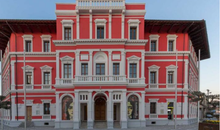

The race for the head of the BKH, the third phase on July 11
2025-07-04 11:20:23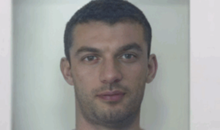
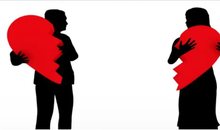
Toxic phrases that show your relationship is in trouble
2025-07-04 11:00:10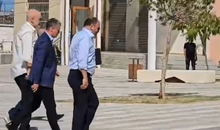
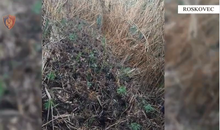
2 brothers arrested in Roskovec, cultivating narcotic plants
2025-07-04 10:38:08
